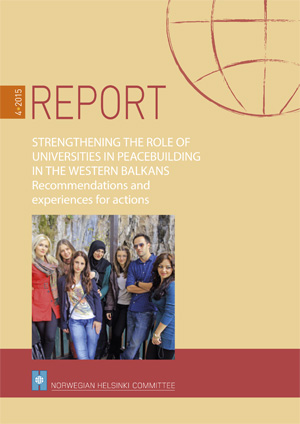The report is a result of the three-year project, called ‘Build Bridges not Walls: Role of universities in peacebuilding’, where participants from universities and organizations from Bosnia & Herzegovina, Serbia, Kosovo and Norway have been involved.
The report concludes that education in peace and intercultural understanding are of key importance for successful transformation of post-conflict societies as a whole and for the transformation of the most important institutions in these societies, including universities. Universities are of special importance due to their educational, scientific and general social functions.
The key principles underlying the recommendations in this report are laid down in the Sarajevo Declaration which was adopted at a conference held 20 March 2014 in Sarajevo, as a part of this project.
The report recommends that relevant actors, universities and other higher education institutions should:
- Actively participate in democratic processes in order to develop citizenry at local, national and global level, and to contribute to the social transformation, the building of trust, transitional justice, and reconciliation;
- Build social capital based on trust, cooperation, networking, volunteerism and the participation of students and their teachers in social processes;
- Define and implement programmes that enhance civic engagement, social responsibility and a culture of peace;
- Build institutional frameworks to support students, teachers, and the non- governmental sector to encourage, recognise and value good examples in the society and disseminate information about good practices of cooperation between civil society and higher education institutions;
- Provide education and knowledge that is depoliticised, de-ideologized, and de- ethnicized, and promote a culture of reflection and engagement of both teachers and students;
- Build partnership between higher education institutions and the non-governmental sector, so as to contribute through networking to the development of individuals, groups, and communities, based on exchange of know-how, skills and experiences;
- Establish cooperation with secondary and primary schools in order to utilise competencies existing in this field and ensure their application at the grass root levels in education.
